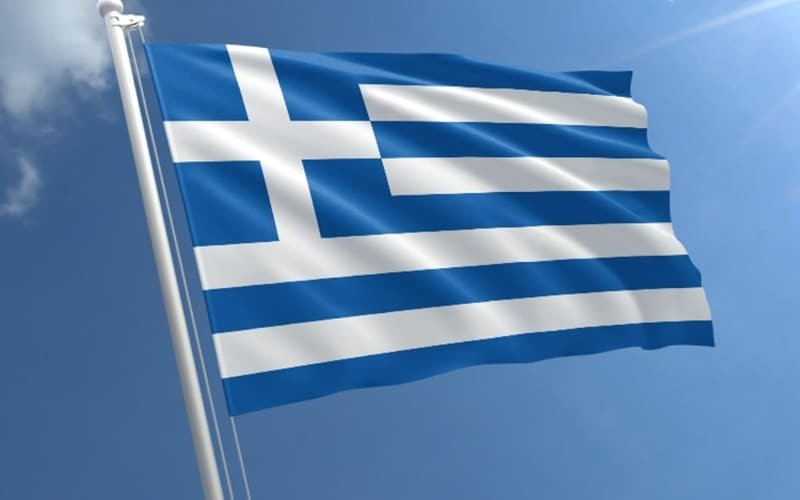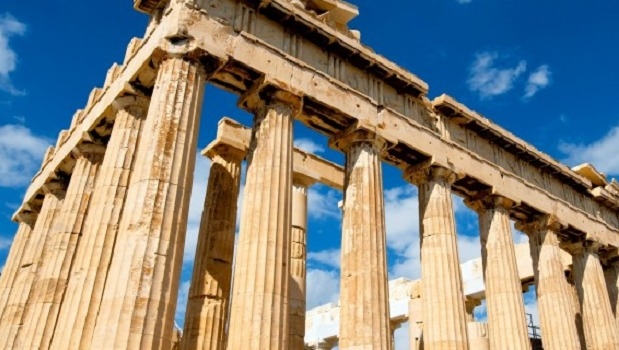Online Gambling Greece

The land that many consider the birthplace of democracy is now run by a comically inept government intent on preventing its citizens from gambling anywhere other than state-owned monopolies. Greek gambling law is poorly written and despite passing legislation to license online gambling sites, the country finds itself in violation of international law and shunned by the very brands it sought to court.
- Find the right online casino site and play whenever you want. Casino Thessaloniki. Casino Porto Carras.
- Online gambling is hugely popular in Greece and makes up a significant part of the country’s economy.
- Greece’s online gambling market suffered a 40% revenue decline over the first five months of 2020 as sports halted due to COVID-19. Figures released by the Hellenic Gaming Commission (HGC) show the.
Online gambling laws in Greece Greece has plan to liberalise online gambling. Greece is located in the south eastern region of Europe and is known officially as the Hellanic Republic. There’s a population of around 11 million, with around 3.75 million located in the country’s capital of Athens.
Many major betting sites have abandoned the Greek market after the passage of legislation that is fraught with licensing difficulties and high taxes. The latest gambling reforms in Greece were pitched as a way to issue licenses to internet gaming companies. In practice, the law seems more intent on squeezing every last bit of revenue possible from the already-struggling gambling industry.
Greece now maintains a blacklist of websites that are blocked by ISPs in an attempt to keep citizens from accessing anything other than state-owned gaming websites. However, major international firms argue that they are in fact legal in Greece pursuant to local gaming laws as well as EU free trade agreements. The situation is needlessly complicated, but changes are coming to Greece in the near future.
888 Accepts Greeks
888Sport is one of the largest European brands to still accept Greek customers. If you’re tired of dealing with the state-owned website, an account with 888 is by far your best choice. 888 is internationally recognized and trustworthy.
Both gaming websites offer more than just sports betting. In addition to sports betting, each has more than a hundred casino games, online poker and more. Even better, they both know how to help Greeks make deposits and supports the Greek language on its website.
We’ll discuss other options in a minute, but currently 888 is the best Greek gambling site and it’s not even close. 888 has a rock solid reputation and a well-established record of providing safe, fair games.
Other Greek Betting Sites
If you’re determined to find a place to gamble online at a website blocked by Greek IPs, here’s what you need to do. First, get an account with a reputable VPN provider. A VPN (short for “virtual private network”) provides an encrypted connection to the internet that allows you to visit websites that are blocked in your country.
Here are two recommendations for VPN services:
The second step is to find a legitimate Greek betting site. With all of the major European brands leaving the market, that leaves the US-friendly sites such as those listed above. Some betting websites have little regard for the prohibitions enacted in the United States, Greece and several other countries. Their stance is that what they do is legal in their country of residence and are under no obligation to follow the laws of foreign nations.
If you have a VPN and are able to access these sites, you’ll be able to play online for real money. However, there are still difficulties in funding your account and getting paid. These sites do not have as many payment methods as sites that operate in gambling-friendly jurisdictions. You’ll also have to find a way to exchange your euros for US dollars.
Additionally, these sites do not support the Greek language. They are all English-only websites. If you speak English and can find a way to deposit, you’ll be good to go. If not, there’s not much you can do. 888 and BetVictor really are the best options for Greeks right now.
Gambling Laws in Greece


Greece’s first attempt to regulate betting in modern times came in 1996 when it passed legislation on sports betting. The law granted a government monopoly to the company OPAP to control all sports betting in the country through the year 2030. OPAP now operates thousands of betting terminals across the nation in addition to a website that allows for wagering on specific sports activities.
OPAP also controls the nation’s lottery and instant win games. Citizens can play the lottery and bet on sports with OPAP but are restricted from all other lotteries and types of online betting. A number of brick-and-mortar casinos also operate in the country but these mostly target tourists rather than citizens.
In 2002, lawmakers in Greece committed their first flub in gambling legislation. A piece of legislation called law 3037/2007 was passed in an attempt to ban online betting at internet cafes. The law included language that banned all electronic games in public places. Suddenly internet cafes were banned from even hosting games of chess and checkers online. The word “game” was interpreted literally and ended up outlawing every type of online game played in public.
The ban was eventually overturned due to it being so ambiguous that even normal video games were prohibited in public. This was just a taste of things to come…
Politicians tried once again to regulate Greek gambling sites with a bill passed in 2011. This bill was sold as a liberalization of the market that would allow online gambling operators to obtain licenses in Greece. The licensing system was also sold as a way to raise money for the indebted government.
The industry’s high hopes were shot down when the final language of the bill was revealed that year. As promised, the bill did offer a licensing mechanism for gaming companies based out of other countries. The problem was that it levied a 30% tax on gross revenues of any company seeking a license. Government-controlled OPAP was exempted from these taxes. The bill also required a 10% winnings tax to be paid by the players.
Better yet, both taxes were applied retroactively going back to January 1st, 2010. The bill also required any licensee to base its operations in Greece, use Greek banking institutions for all transactions and locate its servers within the country.
The high taxes and burdensome licensing conditions put any potential licensees at a major disadvantage. It is clear that lawmakers passed the bill with no intention of opening a free market. What’s more likely is they wanted to look like they were opening the market to competition without actually doing so.
Neither operators nor the European Union were fooled. Several operators challenged the laws in Greek courts while the Court of Justice of the European Union (CJEU) declared the laws in violation of EU competition rules. Greek lawmakers promised to go back and amend the legislation but that hasn’t happened yet.
Online Gambling Freecasinogamesonlinecnm.com
There is some light at the end of the tunnel, though. The Greek government is under great pressure to submit to the EU’s rulings. Unlike some other nations, Greece really, really needs the EU if it wishes to remain solvent in light of its recent debt troubles. Lawmakers cannot afford to completely blow off the EU at this time.
In 2016, Greek lawmakers did outline a new proposal to satisfy EU demands. Sadly, the proposal looks to be a major step back for players and operators alike as lawmakers are now looking to increase the tax rate on licensed operators from 30% to 35%.
Two years later, the government again unveiled a new set of proposed regulations to govern online betting sites. Many of the 2016 proposals remained intact, but two major changes were unveiled in 2018.
First, operators are to be subjected to a €4 million licensing fee to offer sports betting alone and an additional €1 million if they wish to offer additional forms of gaming. Second, any unlicensed betting sites who were added to the government blacklist over the past 12 months for offering their services in Greece will be considered unfit for a gaming license.

These latest proposals are not guaranteed to take effect as of now, but they do serve as a general gauge of the government’s thinking. Looking at this from the big picture point of view, it seems the Greek government is intent on establishing a high-tax, regulation-heavy environment that will stifle the online gambling market from reaching its full potential.
The land that many consider the birthplace of democracy is now run by a comically inept government intent on preventing its citizens from gambling anywhere other than state-owned monopolies. Greek gambling law is poorly written and despite passing legislation to license online gambling sites, the country finds itself in violation of international law and shunned by the very brands it sought to court.
Many major betting sites have abandoned the Greek market after the passage of legislation that is fraught with licensing difficulties and high taxes. The latest gambling reforms in Greece were pitched as a way to issue licenses to internet gaming companies. In practice, the law seems more intent on squeezing every last bit of revenue possible from the already-struggling gambling industry.
Greece now maintains a blacklist of websites that are blocked by ISPs in an attempt to keep citizens from accessing anything other than state-owned gaming websites. However, major international firms argue that they are in fact legal in Greece pursuant to local gaming laws as well as EU free trade agreements. The situation is needlessly complicated, but changes are coming to Greece in the near future.
888 Accepts Greeks
888Sport is one of the largest European brands to still accept Greek customers. If you’re tired of dealing with the state-owned website, an account with 888 is by far your best choice. 888 is internationally recognized and trustworthy.
Both gaming websites offer more than just sports betting. In addition to sports betting, each has more than a hundred casino games, online poker and more. Even better, they both know how to help Greeks make deposits and supports the Greek language on its website.
We’ll discuss other options in a minute, but currently 888 is the best Greek gambling site and it’s not even close. 888 has a rock solid reputation and a well-established record of providing safe, fair games.

Other Greek Betting Sites
If you’re determined to find a place to gamble online at a website blocked by Greek IPs, here’s what you need to do. First, get an account with a reputable VPN provider. A VPN (short for “virtual private network”) provides an encrypted connection to the internet that allows you to visit websites that are blocked in your country.
Here are two recommendations for VPN services:
The second step is to find a legitimate Greek betting site. With all of the major European brands leaving the market, that leaves the US-friendly sites such as those listed above. Some betting websites have little regard for the prohibitions enacted in the United States, Greece and several other countries. Their stance is that what they do is legal in their country of residence and are under no obligation to follow the laws of foreign nations.
If you have a VPN and are able to access these sites, you’ll be able to play online for real money. However, there are still difficulties in funding your account and getting paid. These sites do not have as many payment methods as sites that operate in gambling-friendly jurisdictions. You’ll also have to find a way to exchange your euros for US dollars.
Additionally, these sites do not support the Greek language. They are all English-only websites. If you speak English and can find a way to deposit, you’ll be good to go. If not, there’s not much you can do. 888 and BetVictor really are the best options for Greeks right now.
Gambling Laws in Greece
Greece’s first attempt to regulate betting in modern times came in 1996 when it passed legislation on sports betting. The law granted a government monopoly to the company OPAP to control all sports betting in the country through the year 2030. OPAP now operates thousands of betting terminals across the nation in addition to a website that allows for wagering on specific sports activities.
OPAP also controls the nation’s lottery and instant win games. Citizens can play the lottery and bet on sports with OPAP but are restricted from all other lotteries and types of online betting. A number of brick-and-mortar casinos also operate in the country but these mostly target tourists rather than citizens.
In 2002, lawmakers in Greece committed their first flub in gambling legislation. A piece of legislation called law 3037/2007 was passed in an attempt to ban online betting at internet cafes. The law included language that banned all electronic games in public places. Suddenly internet cafes were banned from even hosting games of chess and checkers online. The word “game” was interpreted literally and ended up outlawing every type of online game played in public.
The ban was eventually overturned due to it being so ambiguous that even normal video games were prohibited in public. This was just a taste of things to come…
Politicians tried once again to regulate Greek gambling sites with a bill passed in 2011. This bill was sold as a liberalization of the market that would allow online gambling operators to obtain licenses in Greece. The licensing system was also sold as a way to raise money for the indebted government.
The industry’s high hopes were shot down when the final language of the bill was revealed that year. As promised, the bill did offer a licensing mechanism for gaming companies based out of other countries. The problem was that it levied a 30% tax on gross revenues of any company seeking a license. Government-controlled OPAP was exempted from these taxes. The bill also required a 10% winnings tax to be paid by the players.
Better yet, both taxes were applied retroactively going back to January 1st, 2010. The bill also required any licensee to base its operations in Greece, use Greek banking institutions for all transactions and locate its servers within the country.
The high taxes and burdensome licensing conditions put any potential licensees at a major disadvantage. It is clear that lawmakers passed the bill with no intention of opening a free market. What’s more likely is they wanted to look like they were opening the market to competition without actually doing so.
Neither operators nor the European Union were fooled. Several operators challenged the laws in Greek courts while the Court of Justice of the European Union (CJEU) declared the laws in violation of EU competition rules. Greek lawmakers promised to go back and amend the legislation but that hasn’t happened yet.
There is some light at the end of the tunnel, though. The Greek government is under great pressure to submit to the EU’s rulings. Unlike some other nations, Greece really, really needs the EU if it wishes to remain solvent in light of its recent debt troubles. Lawmakers cannot afford to completely blow off the EU at this time.
In 2016, Greek lawmakers did outline a new proposal to satisfy EU demands. Sadly, the proposal looks to be a major step back for players and operators alike as lawmakers are now looking to increase the tax rate on licensed operators from 30% to 35%.
Two years later, the government again unveiled a new set of proposed regulations to govern online betting sites. Many of the 2016 proposals remained intact, but two major changes were unveiled in 2018.
First, operators are to be subjected to a €4 million licensing fee to offer sports betting alone and an additional €1 million if they wish to offer additional forms of gaming. Second, any unlicensed betting sites who were added to the government blacklist over the past 12 months for offering their services in Greece will be considered unfit for a gaming license.
Online Gambling Operators In Greece
These latest proposals are not guaranteed to take effect as of now, but they do serve as a general gauge of the government’s thinking. Looking at this from the big picture point of view, it seems the Greek government is intent on establishing a high-tax, regulation-heavy environment that will stifle the online gambling market from reaching its full potential.